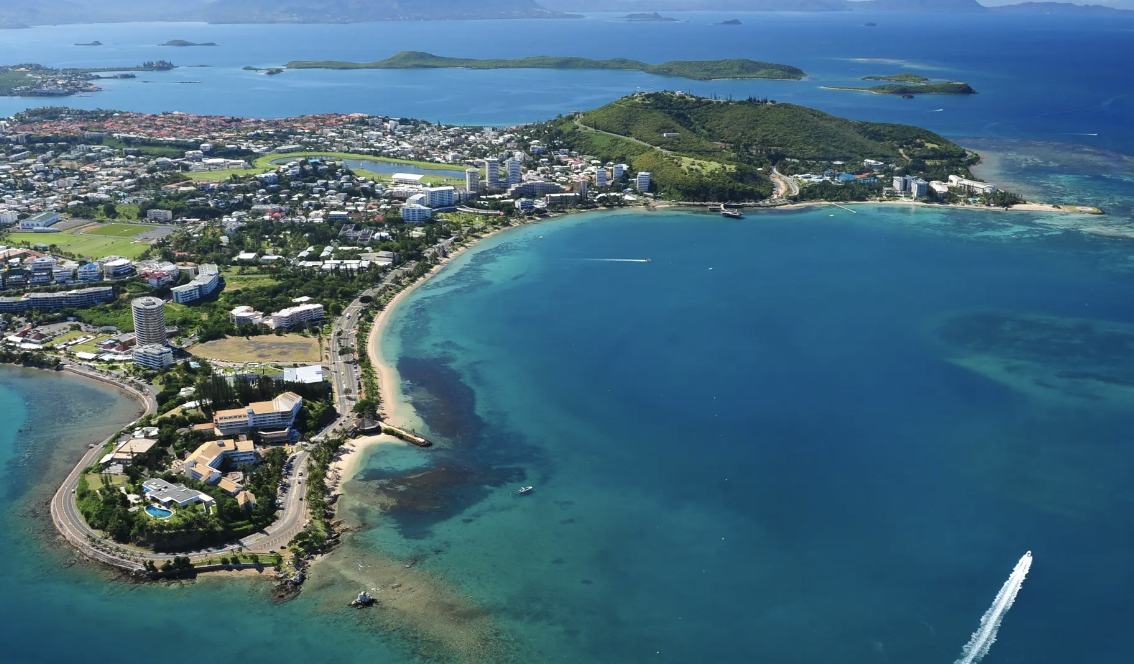
Denis Etournaud. Pic Courtesy: LinkedIn
This write up is based on an email interview by APIBC with Denis Etournaud in November 2024. Denis Etournaud is the Chairman of Bluescope Acier New Caledonia, as well as Chairman of Bluescope Lysaght Vanuatu. Etournaud is a member of the executive committee of the Australia Pacific Islands Business Council (APIBC) and holds directorial and administrative roles in various companies and councils across the Asia-Pacific region. His leadership continues to strengthen trade and economic ties in the region. A key figure in international trade, he has been a member of the French Council of Foreign Trade (CCEF NC) since 1996 and has led its New Caledonia branch as President since 2007, also serving as Vice-President for the Asia-Pacific region.
The May 2024 riots have left New Caledonia’s business sector in turmoil, with hundreds of companies facing insolvency. While some industries remain operational, the overall economic landscape has significantly worsened.
The unrest began on 13 May 2024 during an already challenging period marked by a crisis in the nickel sector and ongoing struggles in construction. The closure of the KNS plant in February 2024 and looming cash flow shortages at SLN-ERAMET and Prony Ressources raised concerns about the viability of the mining industry. At the same time, structural financial imbalances in local government finances and social security accounts compounded economic difficulties.
The economic impact has been severe. By the end of October, more than 6,000 private sector jobs had been lost from a total of 68,000 before the riots, while over 20,000 employees remain on short-time unemployment. More than 800 businesses and public buildings, including schools and churches, have been destroyed. Private sector damages are estimated at over €1.2 billion (AUD 1.96 billion), with GDP contracting by 20 per cent. The New Caledonian government faces a tax revenue shortfall of XPF 36 billion (AUD 2.73 billion) in 2024, equating to 15 per cent of its budget. Social security contributions have also fallen by 15 per cent since May.
Security measures have been strengthened with over 6,000 police and gendarmerie personnel deployed, along with military reinforcements to safeguard key infrastructure. However, movement remains restricted, particularly in the Far South, where around 15,000 residents face ongoing disruptions.
Survival Strategies for Businesses
In response to the crisis, businesses have focused on protecting their premises, supporting employees, and maintaining operations despite an average 50 per cent decline in activity. Many companies introduced deferrals on tax, social security, and loan payments to safeguard cash flow. State aid, including solidarity funds and fixed-cost subsidies, provided temporary relief, while businesses also turned to redundancy measures and short-time unemployment schemes to retain workers.
The “special exactions” scheme has enabled businesses to keep employees on payroll, providing near-full salaries with partial reimbursement from social security. Many companies have also been forced to reassess their business models, exploring new opportunities for economic recovery.
Government Response and Recovery Plans
The crisis coincided with the dissolution of the French National Assembly in June 2024, limiting the government’s ability to introduce major fiscal measures. However, financial assistance was provided from June onwards. Businesses received direct aid of approximately AUD 16,000 per month from May to August 2024. The government also funded social security to maintain short-time unemployment benefits and prevent welfare system collapse. Additional support included funding for essential services, full reconstruction of schools, and 70 per cent of public building repairs. The banking sector also received assistance to stabilise financial institutions.
Security operations remain in force, with a continuing curfew. Political dialogue has been revived, with visits from French ministers and parliamentary leaders, alongside the appointment of an inter-ministerial delegate to oversee the crisis response. New Caledonia’s government has launched the PS2R Plan (Plan de Sauvegarde, Reconstruction et de Refondation de la Nouvelle-Calédonie), aimed at economic diversification. A five-year financial plan is also being developed in collaboration with France to support long-term recovery.
Uncertain Future and the Need for External Support
The long-term outlook remains uncertain. While some businesses may recover, others face permanent closure. The risk of a social crisis looms once government assistance phases out, particularly if economic recovery remains sluggish. Rebuilding efforts hinge on three factors: ensuring long-term security, reaching an institutional agreement on governance, and restoring investor confidence by securing reliable banking and insurance solutions.
External partnerships will be critical in fostering economic diversification and investment. Strengthening trade relations with Queensland and Australia through a bilateral agreement could provide new opportunities for growth. Business leaders are also advocating for a New Caledonia-Australia Business Forum in 2025 to attract investors and expand trade.
As New Caledonia navigates its most severe crisis in decades, the coming months will be crucial in determining whether it can rebuild a stable and resilient economic foundation.
Main pic courtesy: New Caledonia Tourism



